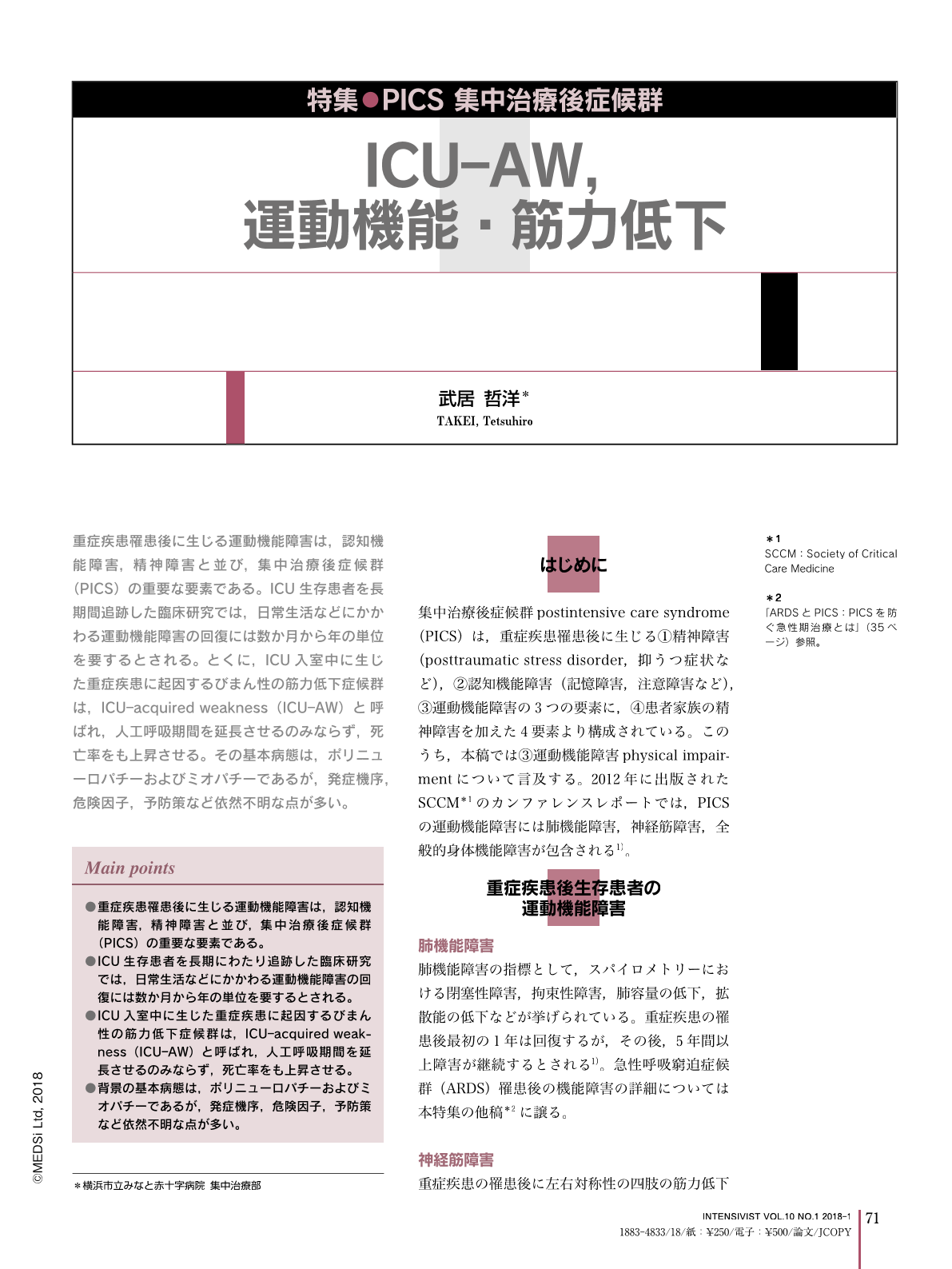Japanese
English
- 有料閲覧
- Abstract 文献概要
- 1ページ目 Look Inside
- 参考文献 Reference
重症疾患罹患後に生じる運動機能障害は,認知機能障害,精神障害と並び,集中治療後症候群(PICS)の重要な要素である。ICU生存患者を長期間追跡した臨床研究では,日常生活などにかかわる運動機能障害の回復には数か月から年の単位を要するとされる。とくに,ICU入室中に生じた重症疾患に起因するびまん性の筋力低下症候群は,ICU-acquired weakness(ICU-AW)と呼ばれ,人工呼吸期間を延長させるのみならず,死亡率をも上昇させる。その基本病態は,ポリニューロパチーおよびミオパチーであるが,発症機序,危険因子,予防策など依然不明な点が多い。
Main points
●重症疾患罹患後に生じる運動機能障害は,認知機能障害,精神障害と並び,集中治療後症候群(PICS)の重要な要素である。
●ICU生存患者を長期にわたり追跡した臨床研究では,日常生活などにかかわる運動機能障害の回復には数か月から年の単位を要するとされる。
●ICU入室中に生じた重症疾患に起因するびまん性の筋力低下症候群は,ICU-acquired weakness(ICU-AW)と呼ばれ,人工呼吸期間を延長させるのみならず,死亡率をも上昇させる。
●背景の基本病態は,ポリニューロパチーおよびミオパチーであるが,発症機序,危険因子,予防策など依然不明な点が多い。
Physical impairment after critical illness, as mental and cognitive impairment, is a major contributor to postintensive care syndrome. Clinical trials investigating long-term outcomes of ICU survivors indicate that recovery of physical function to perform activities of daily living may take several months to even years. The physical impairment seen in ICU survivors, diffuse limb weakness syndrome caused by critical illness during the ICU stay, is called ICU-acquired weakness, which is associated with longer duration of mechanical ventilation, and increased mortality. The pathophysiology of ICU-acquired weakness is polyneuropathy and/or myopathy, but the exact mechanisms, risk factors and preventive measures are yet to be fully understood.

Copyright © 2018, MEDICAL SCIENCES INTERNATIONAL, LTD. All rights reserved.


